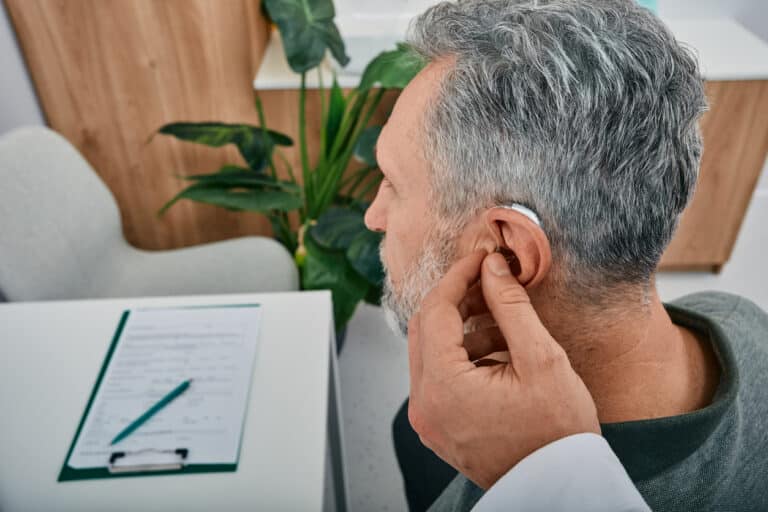Multiple Sclerosis (MS) is an autoimmune disease in which the immune system attacks the myelin, or protective covering, of the brain, spinal cord and eyes. As a result, those with MS experience symptoms like muscle pain and weakness and problems with cognitive ability and memory. The disease progresses with remissions and relapses. Approximately 2 million individuals have MS, and in 4% to 10% of MS patients, sensorineural hearing loss occurs.
Hearing loss and conditions associated with hearing loss, such as tinnitus, are not common symptoms of MS. When diagnosing hearing loss and tinnitus, MS will likely not be the cause. Hearing loss due to MS can occur due to nerve damage in the brain from an MS relapse. Or MS lesions can appear along nerves and areas of the brain responsible for hearing, potentially causing sensorineural hearing loss.
Sudden Hearing Loss

Hearing loss can occur in various ways in relation to MS. Sudden hearing loss develops quickly, happening all at once or over several days, as opposed to age-related or noise-related hearing loss, which occurs gradually.
When occurring in conjunction with MS, it typically affects one ear, although there are some rare cases when it occurs in both ears. It can be accompanied by a crackling or a popping noise.
This type of hearing loss typically occurs due to nerve damage in the brain. Sudden hearing loss is often accompanied by tinnitus.
Tinnitus
Tinnitus is the presence of ringing, buzzing or other sounds in one or both ears when no sound is present. The sounds can interfere with your ability to hear other noises. If you experience tinnitus or hearing loss with an MS remission, talk to your doctor. Your doctor can prescribe a round of steroids, and you may experience recovery over several weeks to months.
Some people experience only partial recovery of their hearing, and some experience permanent hearing loss. Hearing aids can be a great option to prevent additional hearing loss and manage existing hearing loss, enhancing quality of life.
If you’re experiencing hearing loss, contact Gulf Coast Audiology to schedule a hearing test or discuss hearing aids as a treatment option with your doctor.
